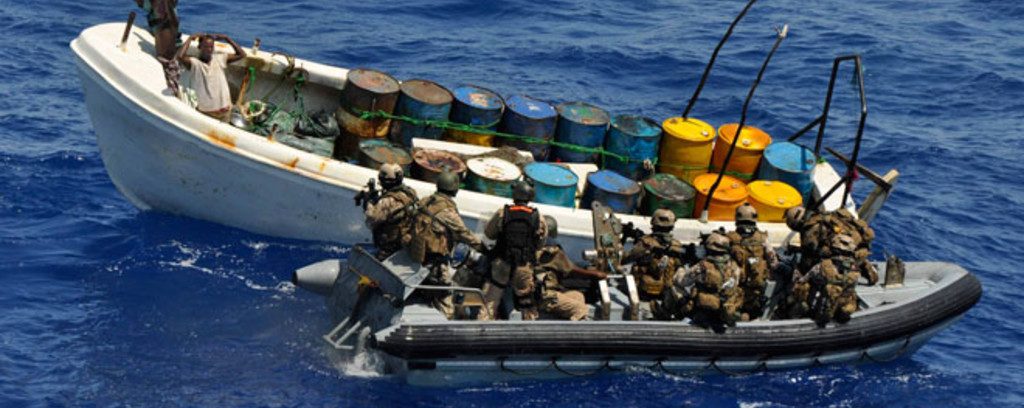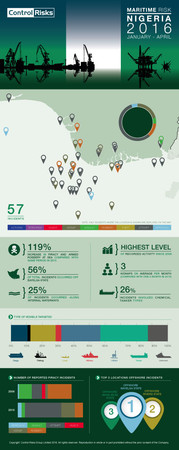So far, incidence of piracy off of the Nigerian coastline reported for period from January to April 2016 are three times higher than the same period last year, according to Control Risks’ Maritime (CRM) Risk Analysis division. Another worrying piece of data indicates a 21% increase in incidents at sea in West Africa compared to 2008, arguably the annus horribilis for African piracy.
Oil tankers have also been increasingly targeted with over 55% of all vessels affected this year being oil tankers.
Click on infographic below for more detail.
Key findings of the CRM Report:
- Piracy and armed robbery incidents January to April 2016 were most prevalent in offshore Bayelsa state (56 per cent of incidents) and offshore Rivers state (17 per cent)
- 25 per cent of incidents January to April 2016 occurred along internal waterways
- 119 per cent increase in piracy January to April 2016 compared with same period in 2015
Changing in Tactics
A report issued in May of this year by nonprofit Oceans Beyond Piracy (OBP), indicates another alarming trend: Since 2015 the majority of at-sea attacks in the Gulf of Guinea have been kidnappings. The report postulates that the low oil price has made kidnappings for ransom a more lucrative option for pirates who previously hijacked tankers for cargo.
As project manager for OPB, Matthew Walje, explains, “A lower payout at the end made it so it was no longer an economically viable model. So what they did instead was switch to a kidnapping for ransom model…. It takes just a few hours.”
Hijacking oil from a tanker requires several pirate vessels and a significant amount of time before authorities arrive on the scene in order for the theft to be carried out. Ramped-up patrolling of Nigerian waters and oil’s diminished profitability have made robbery too costly.
Kidnapping, on the other hand, can be done relatively quickly — the pirates storm a ship, identify who to take and what valuables to steal, and then concentrate on evading security as they make off with their hostages. Simply put, the Gulf of Guinea are the most dangerous waters for sea-farers.
Increased off-coast security makes violent attacks more likely
Counter-intuitively, since Nigeria and other affected countries have stepped up their off-shore security patrol numbers and training, the attacks have become more violent over the period; pirates are working “under pressure” and there is a need to close the deal quickly – hence the violent nature of kidnappings. the OPB report notes victims at sea have been beaten, tortured, given little to eat, and subjected to mock executions.


